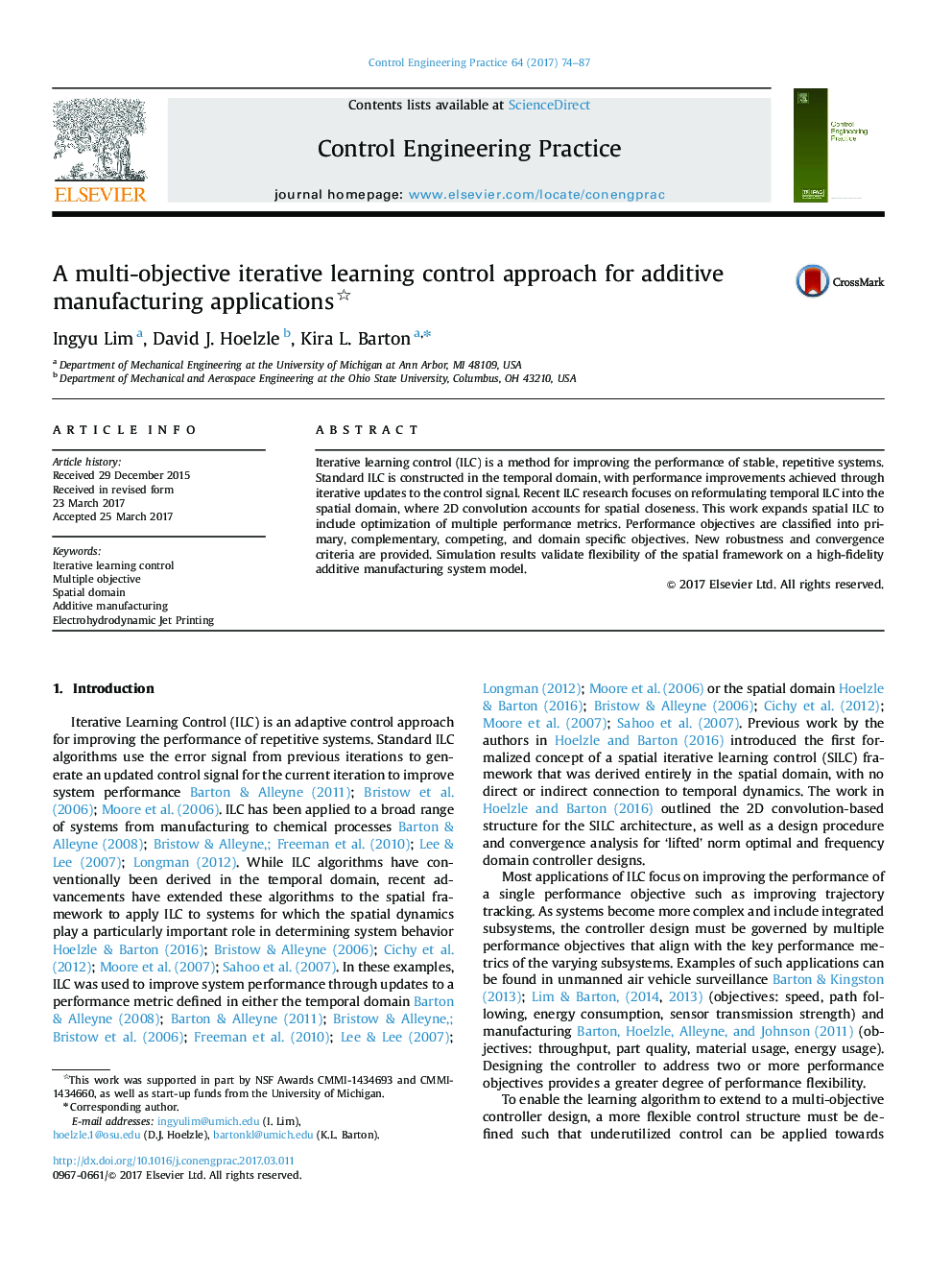| Article ID | Journal | Published Year | Pages | File Type |
|---|---|---|---|---|
| 5000317 | Control Engineering Practice | 2017 | 14 Pages |
Abstract
Iterative learning control (ILC) is a method for improving the performance of stable, repetitive systems. Standard ILC is constructed in the temporal domain, with performance improvements achieved through iterative updates to the control signal. Recent ILC research focuses on reformulating temporal ILC into the spatial domain, where 2D convolution accounts for spatial closeness. This work expands spatial ILC to include optimization of multiple performance metrics. Performance objectives are classified into primary, complementary, competing, and domain specific objectives. New robustness and convergence criteria are provided. Simulation results validate flexibility of the spatial framework on a high-fidelity additive manufacturing system model.
Keywords
Related Topics
Physical Sciences and Engineering
Engineering
Aerospace Engineering
Authors
Ingyu Lim, David J. Hoelzle, Kira L. Barton,
